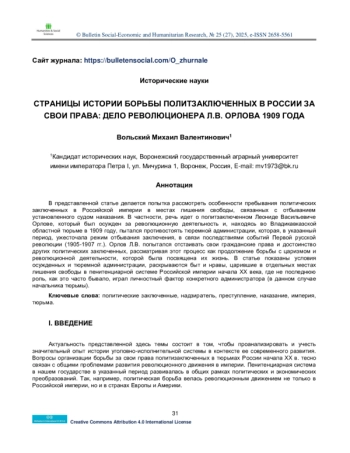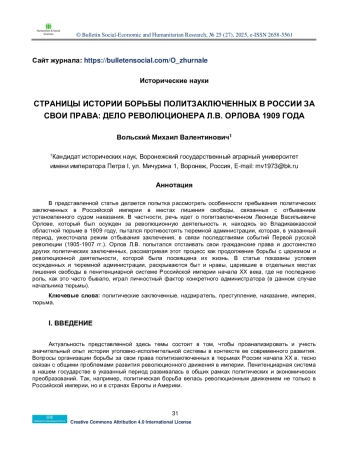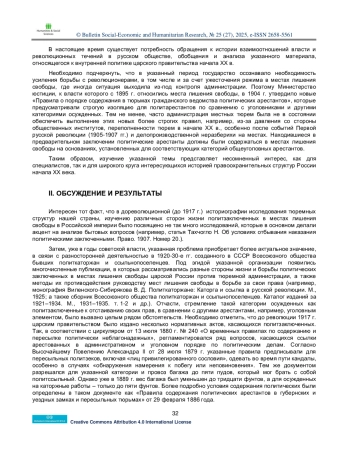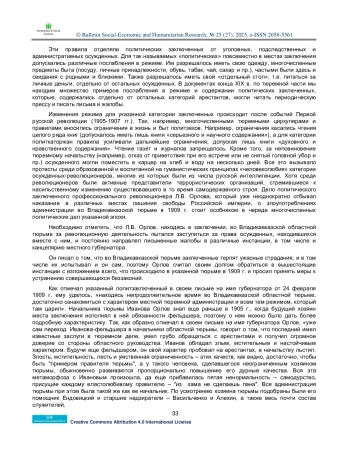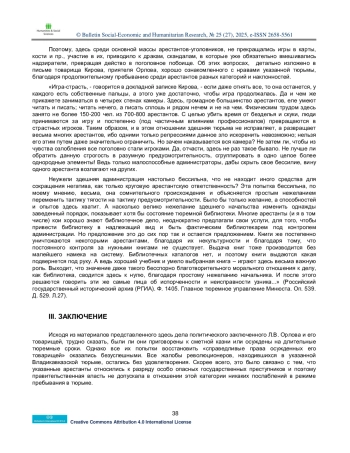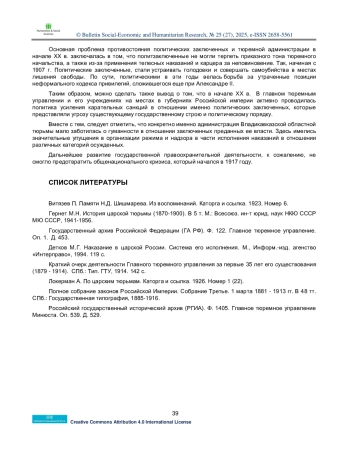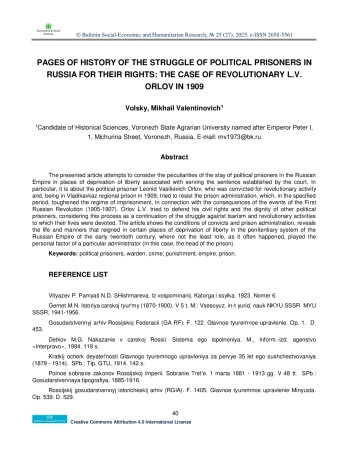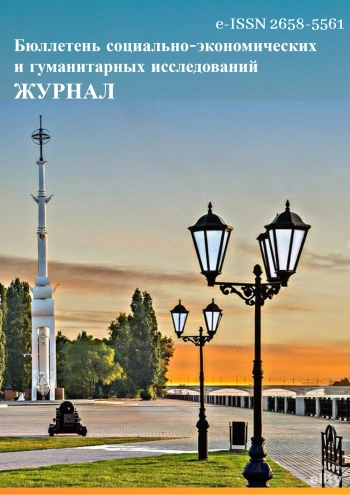The presented article attempts to consider the peculiarities of the stay of political prisoners in the Russian Empire in places of deprivation of liberty associated with serving the sentence established by the court. In particular, it is about the political prisoner Leonid Vasilievich Orlov, who was convicted for revolutionary activity and, being in Vladikavkaz regional prison in 1909, tried to resist the prison administration, which, in the specified period, toughened the regime of imprisonment, in connection with the consequences of the events of the First Russian Revolution (1905-1907). Orlov L. V. tried to defend his civil rights and the dignity of other political prisoners, considering this process as a continuation of the struggle against tsarism and revolutionary activities to which their lives were devoted. The article shows the conditions of convicts and prison administration, reveals the life and manners that reigned in certain places of deprivation of liberty in the penitentiary system of the Russian Empire of the early twentieth century, where not the least role, as it often happened, played the personal factor of a particular administrator (in this case, the head of the prison).
В представленной статье делается попытка рассмотреть особенности пребывания политических заключенных в Российской империи в местах лишения свободы, связанных с отбыванием установленного судом наказания. В частности, речь идет о политзаключенном Леониде Васильевиче Орлове, который был осужден за революционную деятельность и, находясь во Владикавказской областной тюрьме в 1909 году, пытался противостоять тюремной администрации, которая, в указанный период, ужесточала режим отбывания заключения, в связи последствиями событий Первой русской революции (1905-1907 гг.). Орлов Л. В. попытался отстаивать свои гражданские права и достоинство других политических заключенных, рассматривая этот процесс как продолжение борьбы с царизмом и революционной деятельности, которой была посвящена их жизнь. В статье показаны условия осужденных и тюремной администрации, раскрываются быт и нравы, царившие в отдельных местах лишения свободы в пенитенциарной системе Российской империи начала ХХ века, где не последнюю роль, как это часто бывало, играл личностный фактор конкретного администратора (в данном случае начальника тюрьмы).
